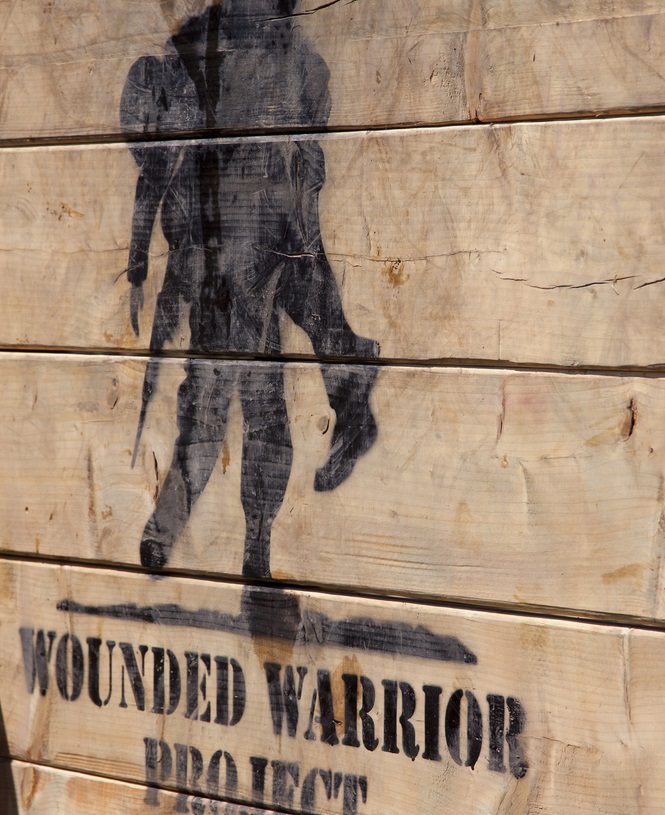 January 28, 2016; Idaho Statesman In the wake of the CBS News story about Wounded Warrior Project’s spending on staff retreats and the corresponding New York Times article, smaller, local organizations that serve veterans want to let the public know that they are standalone entities. One such organization, the Wyakin Warrior Foundation in Boise, Idaho, released a statement earlier this week to clarify their position as separate 501(c)(3) that is not in any way affiliated with the Wounded Warrior Project. Another organization, Wounded Warriors Family Support, states at the top of their website in red letters that they are not part of the Wounded Warrior Project. (It is unclear whether that statement was on the website prior to the news stories released this week.) NPQ has extensively covered organizations serving veterans and the fraud and controversy that tends to surround them. This is not the first time that the Wounded Warrior Project has received some bad press. Less than a year ago, NPQ reported on the Wounded Warrior Project’s “mission” to take legal action against locally based veterans’ organizations whose names included the words wounded warrior. This is troubling, as both sides, the big organization and the little organization, were then diverting funds for legal fees that could otherwise have been used toward their respective missions. Some small organizations may not be able to financially fight that legal battle. Others may simply choose not to engage in a legal battle in order to do the work they set out to do in the first place: serve veterans. Another way in which the waters are muddied when it comes to veterans’ organizations appropriately using donor funds is when they are used as a backdrop for political campaigns. In the fall of 2015, Donald Trump spoke at an event that was hosted by a fake organization called Veterans for a Strong America. More recently, in the same week that the Wounded Warrior Project news story broke, this same candidate chose to host his own event rather than participate in the most recent televised debate. As the Military Times reported, it was not clear how and to which veterans’ organizations funds raised through that event, held in protest at the same time as the televised debate, would be disbursed. Attendees wrote checks to Trump’s own foundation, which will then allocate the funds. There was speculation that the organizations that will receive the larger portions will be those located in Iowa as the first presidential primary takes place next week. In light of all this controversy, it seems wise to look back to a call to action put forth by the late Rick Cohen, nonprofit advocate and national correspondent for NPQ. Just this past Veterans Day, Cohen urged those concerned about veterans’ issues to bring more oversight to the growing number of organizations serving them and their families. He suggested that a task force be put together to review and “scrutinize” organizations claiming to serve and to focus on issues that are priorities to veterans, to create a working group to focus specifically on veterans charities (like a GuideStar or Charity Navigator for this particular segment of the nonprofit sector) and to create a veterans charities hotline. The hotline would allow skeptical donors to obtain unbiased information on the work of the organizations that claim to serve this community of service men and women. Perhaps these recent events will press those in power to take that call to action seriously.
January 28, 2016; Idaho Statesman In the wake of the CBS News story about Wounded Warrior Project’s spending on staff retreats and the corresponding New York Times article, smaller, local organizations that serve veterans want to let the public know that they are standalone entities. One such organization, the Wyakin Warrior Foundation in Boise, Idaho, released a statement earlier this week to clarify their position as separate 501(c)(3) that is not in any way affiliated with the Wounded Warrior Project. Another organization, Wounded Warriors Family Support, states at the top of their website in red letters that they are not part of the Wounded Warrior Project. (It is unclear whether that statement was on the website prior to the news stories released this week.) NPQ has extensively covered organizations serving veterans and the fraud and controversy that tends to surround them. This is not the first time that the Wounded Warrior Project has received some bad press. Less than a year ago, NPQ reported on the Wounded Warrior Project’s “mission” to take legal action against locally based veterans’ organizations whose names included the words wounded warrior. This is troubling, as both sides, the big organization and the little organization, were then diverting funds for legal fees that could otherwise have been used toward their respective missions. Some small organizations may not be able to financially fight that legal battle. Others may simply choose not to engage in a legal battle in order to do the work they set out to do in the first place: serve veterans. Another way in which the waters are muddied when it comes to veterans’ organizations appropriately using donor funds is when they are used as a backdrop for political campaigns. In the fall of 2015, Donald Trump spoke at an event that was hosted by a fake organization called Veterans for a Strong America. More recently, in the same week that the Wounded Warrior Project news story broke, this same candidate chose to host his own event rather than participate in the most recent televised debate. As the Military Times reported, it was not clear how and to which veterans’ organizations funds raised through that event, held in protest at the same time as the televised debate, would be disbursed. Attendees wrote checks to Trump’s own foundation, which will then allocate the funds. There was speculation that the organizations that will receive the larger portions will be those located in Iowa as the first presidential primary takes place next week. In light of all this controversy, it seems wise to look back to a call to action put forth by the late Rick Cohen, nonprofit advocate and national correspondent for NPQ. Just this past Veterans Day, Cohen urged those concerned about veterans’ issues to bring more oversight to the growing number of organizations serving them and their families. He suggested that a task force be put together to review and “scrutinize” organizations claiming to serve and to focus on issues that are priorities to veterans, to create a working group to focus specifically on veterans charities (like a GuideStar or Charity Navigator for this particular segment of the nonprofit sector) and to create a veterans charities hotline. The hotline would allow skeptical donors to obtain unbiased information on the work of the organizations that claim to serve this community of service men and women. Perhaps these recent events will press those in power to take that call to action seriously.
So why are so many organizations claiming to serve veterans, anyway?
As independent, small, locally-based veterans organizations like the Wyakin Warrior Foundation work to publicly differentiate themselves from the Wounded Warrior Project, many may ask the question: Why are there so many different organizations trying to serve this group of people? Certainly, there is something to be said for power in numbers. Collective donations funneled through a large organization could potentially have more of an impact. And a stronger, more unified voice of a larger organization can be heard much more clearly in the media, and when it comes to the advocacy efforts to help veterans receive necessary care and achieve a better quality of life. The Washington Times asked this same question and uncovered some very valid reasons for all of these different organizations. Membership in the stalwarts of the veteran social cause space, Veterans of Foreign Wars (VFW) and the American Legion, consist largely of older men who served in World War II, Korea, and Vietnam. This means that there are some generational gaps, as well as a gender gap, that perhaps make those organizations less appealing to veterans from Iraq and Afghanistan. Both the VFW and the American Legion are viewed by some as little more than groups that operate smoky bars and rely on hard-copy newsletters to communicate the actual work they are doing. Veterans of more recent conflicts have different issues, needs, and ways of communicating. Newer veterans’ groups are more invested in social media as a communication tool. They understand they are not serving an entirely male audience. And some focus more on reintegration into civilian life, exercise as way to deal with stress and anxiety, and activities for the whole family as opposed to only the veteran him or herself. But one thing remains the same for those who financially support the more seasoned organizations or the newer ones: They seek to feel confident that donations of any size are being put to the best use possible to help someone who has served this country.
Sign up for our free newsletters
Subscribe to NPQ's newsletters to have our top stories delivered directly to your inbox.
By signing up, you agree to our privacy policy and terms of use, and to receive messages from NPQ and our partners.
Bad press for one organization can harm the sector as a whole
The repercussions of the Wounded Warrior Project are likely not felt only by organizations that serve veterans. The president and CEO of the Association of Fundraising Professionals (AFP), Andrew Wyatt, shared his thoughts on this particular news story in his weekly blog. He aptly stated, “All of us wince when an unfavorable light is cast on a nonprofit organization or a nonprofit leader.” Donors to other national nonprofit organizations, such as voluntary health or religious organizations, were probably examining the most recent financial statements of those entities this week, too. That is not a bad thing. A donor who can look at those financial statements and continue to feel positive about his or her support has a higher likelihood of making a repeat donation. Non-Wounded Warrior Project organizations, like Wyakin Warrior Foundation, should continue to differentiate themselves from the “big guy.” What could help more positively set them apart would be providing links to their financial statements in their press releases that clarify they are not part of a larger group. Specifically, local veterans groups should highlight the amount invested in mission and invite conversations about investments in overhead (which is necessary to most effectively work towards a mission). Nothing can put concerns about use of donations at ease more than a forthcoming transparency.—Kelley Malcolm













